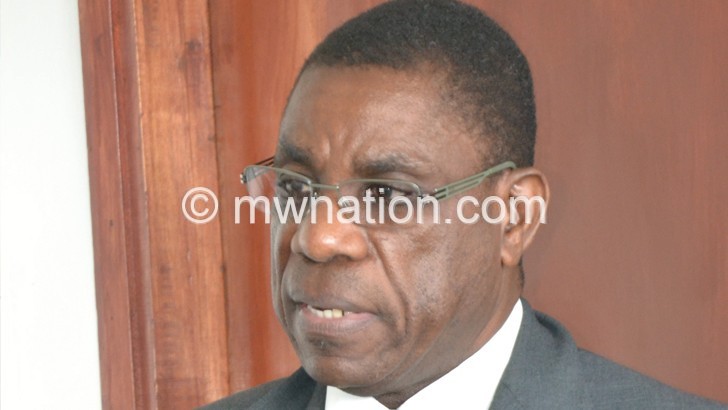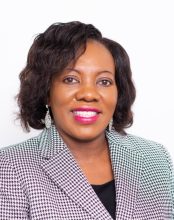Busted: Dirty water boards
Tap water supplied by the country’s five water boards is not safe to drink as it is dirty and contains unacceptable chemical levels, a government-commissioned drinking water quality audit has established.
A health engineering expert has told The Nation that the report has exposed government’s lack of seriousness in ensuring provision of safe water to people in line with the United Nations’ Sustainable Development Goal number six.

Ministry of Forestry and Natural Resources commissioned the audit between July and August last year and it was conducted by the Water Service Association of Malawi and the Department of Water Resources (DWR).
Released on Wednesday this week, the audit report states that it sampled randomly selected 21 raw water sources, 23 treatment plants and 83 consumer points managed by Lilongwe Water Board (LWB), Central Region Water Board (CRWB), Northern Region Water Board (NRWB), Blantyre Water Board (BWB), Southern Region Water Board (SRWB) and four Water User Associations (WUAs) of Jenda in Mzimba, Koche in Mangochi, Mpira in Ntcheu and Lirangwe in Blantyre.
The audit established that the five water boards have been supplying consumers unsafe water with high turbidity (low clarity or dirty water), an indicator of presence of pathogens. The audit also found that there are unacceptable chemical levels detected in the supplied tap water.

On turbidity (water clarity), the report says most of the sampled water in the sites registered high turbidity values, showing that the water was not safe. Materials that cause water to be turbid include clay, silt, dissolved organic compounds and other microscopic organisms, according to the report.
Reads the report in part: “Achieving low turbidities in drinking-water is a proven indicator of pathogen removal and hence of drinking-water safety.
“The clarity of water from 55 sampled points within the distribution system registered high turbidity values ranging from 1.02-52.9 NTU against the acceptable range of less than or equal to 1.0 NTU. The water from these samples was, therefore, aesthetically not pleasing.”
Faecal contamination, the report points out, was detected in water supplied to residents of Chipoka in Salima and Mpira/Balaka in Ntcheu while the unaccepted levels of fluoride which may cause dental problems, was not detected only in one scheme (Mzimba Water Supply) of the sampled points.
Unacceptable levels of iron and chlorine were also prevalent as the audit shows that 55 sites in the 127 water points registered free chlorine residual values outside the acceptable range of 0.20 to 0.50mg/l, according to Malawi Standards for drinking water specifications(MS214:2013).
The report adds that this is an indication that chlorine disinfection is not prioritised in most of the water schemes visited.
High levels of chlorine are known to have potential to trigger asthma attacks, according to various health studies.
The water tests were conducted in line with Malawi Bureau of Standards (MBS) drinking water specifications as per Article 214 of Catalogue of Malawi Standards (MS214:2013) which specify “the physical, biological, organoleptic and chemical requirements for treated drinking tap water”.
The assessor also observed that the Chipoka water scheme managed by CRWB did not treat its water during the review period.
Reads the report: “The auditing team observed that the night before the arrival of the team, chlorination of the water was not done as the operator on duty did not do so; hence, chlorination was being done in the presence of the auditing team, an indication that the general population within Chipoka was provided with untreated water the previous night.”
The audit concluded that “at the time of the visits, none of the utilities was supplying safe drinking water”.
In its brief titled Water Quality and Health, the World Health Organisation writes: “Incidents of elevated turbidity have been associated with several outbreaks of disease.”
In his reaction to the quality audit, health engineering expert Elias Chimulambe said people’s health is at risk as people are consuming unsafe water.
He said: “High turbidity in the water we drink indicates that the water quality is below acceptable standards or the water is not being comprehensively treated per our own Government of Malawi recommendations and standards.
“The government through these five water boards are failing to provide safe drinking water per the Act of Parliament under the Water Works Act and Water Resources Act. This is unacceptable by all means and the government through the Ministry of Forestry and Natural Resources should take action now.”
Chimulambe wondered why the water boards were failing to meet the requirements when they have the capacity.
He said: “They [water boards] all have departments that look at quality control and are supposed to check every day the quality of water being produced by their boards.
“The Ministry of Forestry and Natural Resources has a central laboratory stationed in Lilongwe which is to check and periodically carry out laboratory tests and provide advice to the water utilities including the five water boards. These things are not happening.”
On his part, Consumers Association of Malawi executive director John Kapito faulted MBS for allegedly failing to monitor the quality of water the utilities offer to their customers.
“Unfortunately, these water boards have become inspection agents themselves. The MBS is supposed to be monitoring the water and enforcing the rules and part of its mandate. However, it is doing nothing,” he said.
Kapito asked government to formulate a water regulation body that would pressure water boards to adhere to the rules.
He said: “As part of the Public Sector Reforms Programme, we asked for the formation of an independent water regulation body. But up to now, nothing has happened. We need to raise our standards. Water is not just water. Water is water when it is clean.”
Ministry of Forestry and Natural Resources director of Water Supply and Sanitation Emma Mbalame said she could not immediately comment on the report as “it was prematurely released”.
MBS and Wasama had not responded to our questionnaire as we went for press while the water boards involved said they are analysing the report and would comment later.





